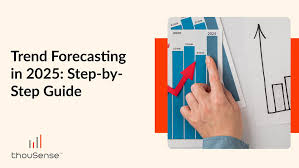As a PhD scholar, you are an expert historian of your niche. You’ve spent years conducting a deep literature review, meticulously mapping what has been said and what has been done. But your training has given you a far rarer and more valuable skill than just understanding the past: it has trained you to predict the future.
You are not just a researcher; you are a trend analyst. While you’ve been tracking the evolution of an academic theory or a scientific method, you’ve been honing the exact skills that businesses and governments rely on to navigate an uncertain future.
At McKinley Research, we believe this ability—to separate signal from noise and forecast what’s next—is one of the most powerful skills a researcher can possess. Here’s how your doctoral training prepared you for a career in strategic foresight.
4 PhD Skills That Make You an Expert Futurist
Your dissertation work is a deep exercise in identifying and extrapolating patterns. This is the core of professional forecasting.
1. Your Skill: The Literature Review as a Trajectory Map
- Your PhD Training: You didn’t just list papers; you synthesized them. You identified which theories were gaining traction, which were being disproven, and where the “bleeding edge” of research was heading. You tracked the evolution of an idea over decades.
- The Business Parallel: This is Trend Analysis. We do the same thing, but with market or consumer data. We track the evolution of consumer behavior, competitor moves, and technological adoption to see where the market is going, not just where it has been.
2. Your Skill: Quantitative Modeling & Prediction
- Your PhD Training: If you’re a quantitative scholar (in economics, sociology, STEM), you build models (like regression or time-series analysis) to understand how variables interact and to predict future outcomes.
- The Business Parallel: This is Predictive Analytics & Forecasting. We build statistical models to answer questions like: “Based on current trends, what will our sales be in 2026?” or “How will a shift in commodity prices impact consumer purchasing behavior?” Your advanced modeling skills are in extremely high demand.
3. Your Skill: Qualitative Foresight (Thick Data)
- Your PhD Training: If you’re a qualitative scholar (in anthropology, sociology, humanities), you conduct in-depth interviews and ethnographic research to understand the “why.” You’re trained to spot emerging cultural shifts, new anxieties, and unmet needs before they are large enough to show up in a survey.
- The Business Parallel: This is Qualitative Foresight. We use these same methods to identify emerging consumer needs and cultural trends. This “thick data” helps companies innovate and create products for a future that doesn’t exist yet.
4. Your Skill: Building a Defensible Argument (Scenario Planning)
- Your PhD Training: Your dissertation is a long-form, data-backed argument for a specific conclusion, defended against all possible critiques.
- The Business Parallel: This is Strategic Scenario Planning. We present clients with data-backed forecasts for several possible futures (e.g., “Scenario A: High Growth,” “Scenario B: Recession”). We then use our research to argue which scenario is most likely and what strategy they should adopt. Your ability to build a rigorous, evidence-based argument is critical.
What Does a PhD in Forecasting Do at McKinley Research?
At McKinley Research, our forecasters are our strategic guides. You’re not just reporting on the past; you’re helping clients prepare for the future. A typical project might involve:
- Identifying Weak Signals: Monitoring emerging consumer behaviors, new technologies, and regulatory changes to spot “weak signals” of a major future trend.
- Building Models: Creating quantitative models to forecast market size, penetration, and adoption rates for a new product category.
- Developing Scenarios: Writing detailed, data-driven “Future of X Industry” reports that help C-suite leaders make multi-billion dollar investment decisions.
- Presenting the “Why”: Explaining why a trend is happening and what its strategic implications will be, helping leaders navigate ambiguity with confidence.
Your PhD Makes You a Navigator for the Future
Your doctoral training has given you a rare ability to look at a complex, chaotic dataset—whether it’s 100 years of literature or 100 million lines of sales data—and find the underlying pattern.
At McKinley Research, we don’t just value this skill; our entire business is built on it. We provide the critical insights that help companies, non-profits, and governments make better long-term decisions. If you are a scholar who loves finding patterns and is passionate about what happens next, a career in strategic research and forecasting may be your ideal “alt-ac” path.


